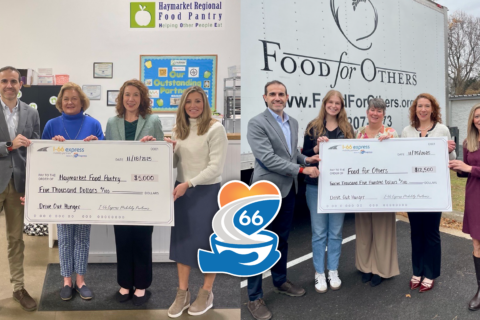
Being part of the community, working with and for it, is at the core of how Cassius Priestly views his job.
Priestly provides financial services to businesses and organizations across the Washington, D.C., metropolitan region as the market president–commercial banking at Truist. But he’s also chairman of the Prince George’s Chamber of Commerce and chairman of the board of directors for Community Youth Advance, a nonprofit that supports students in the metropolitan D.C. region.
“I always say I have the best job in the world,” he said. “Because I’m able to work with wonderful teammates, which is what we call Truist employees, and also the clients and community organizations that we work with. And then I’m also able to go out in the community, serve on boards and help businesses and organizations thrive. And the bank is telling me, ‘Yes, this is what we want you to do.’ ”
Beyond bank accounts
From his perspective, Priestly said that viewing clients as community partners changes how he does his job. “You approach it totally differently than you would as a vendor or as if you’re simply providing a service,” he said.
Bernita Bailey, who works closely with Priestly at Truist, seconded that.
“That the bank that I work for supports that and encourages that, it pushes us to do more for our community and for our customers,” said Bailey, who is senior vice president and suburban Maryland market president. “We can’t say that we’re going to inspire and build better lives and communities just with commercials. We have to go out there and do the work.”
Like Priestly, Bailey also participates in multiple community organizations, including on the board of the Boys & Girls Clubs of Montgomery County, Maryland. She recalled not long ago joining 100 Truist employees over two weeks to help landscape and set up a recreation room for a nonprofit that provides services to people with disabilities. Truist had handled the financing for the organization’s new facility.
“A lot of banks stop at the financing, but we decided, ‘Let’s take it a step further. How can we fully support this organization?’ ” Bailey said, adding that Truist calls these initiatives Lighthouse Projects. “We were able to back up the financing with grant dollars and then with the manpower to come out and help.”
In Truist’s DNA
Priestly is quick to note that taking part in groups that support local businesses, nonprofit organizations and residents isn’t new at Truist, which was formed in 2019 through the merger of BB&T and SunTrust Banks.
“It’s one of the many benefits of our merger — we provide the community banking approach that BB&T was known for and all the advisory services that SunTrust was known for. It’s a powerful and unique combination that’s created great opportunities and outcomes for our clients and communities,” he said.
Truist can advise clients and provide needed expertise, products and resources as entrepreneurs launch and build their businesses, Priestly said. “You have to anticipate where they’re going, not just where they’ve been.”
As part of the bank’s holistic approach to serving businesses, it has financial advice experts for every size of company so it can help local businesses and organizations as they grow and evolve, Bailey said. It has established advice teams with expertise in small business, commercial real estate, government contracting, health care, nonprofits, foundations and more.
“We want to be able to take care of every aspect of a client’s financial life,” Priestly said. “That’s really been our focus since day one.”








